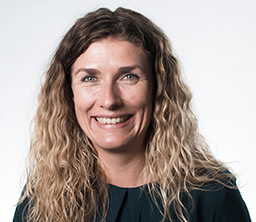Preparation for a Stay Abroad
There are many options for studying abroad. First, you should clarify what goals you are pursuing: Do you want to deepen existing language skills? Live in a foreign culture? Do you want to study or gain international work experience? No matter what your personal motivation is - preparation is everything!
Where should the journey go?
The TH Köln cooperates with many partner universities.
Bilateral agreements regulate the student exchange, e.g. the number of study places per semester, application deadlines and application documents to be submitted. The faculties and institutes as well as the Department of International Affairs of the TH Köln will support you with questions regarding the application process as well as scholarships and funding opportunities.
On our website you can read reports from fellow students on the exchange opportunities with the partner universities shown - both for studying abroad and for the possibility of an internship abroad.
Of course, you can apply independently and worldwide to other universities as a "visiting student" or "free mover". Information for self-organized stays abroad can be found on the homepage of your university of choice.
The German Academic Exchange Service (DAAD) also offers information on study systems, universities and application requirements. The DAAD has also launched the initiative "studieren weltweit - ERLEBE ES" (study worldwide - experience it; in German) together with the Federal Ministry of Education and Research.
When is the right time for a stay abroad?
Before you go abroad for an internship or study, you should ideally be very familiar with the processes at TH Köln or in your field of study. We recommend a study abroad stay from the 3rd semester on. When making your decision, please also take into account the study regulations for your field of study. Are there perhaps periods of study abroad planned or even compulsory? In which semester do you have to complete fewer courses? Basically, you should ask your program director about possible compulsory or elective courses that you can also successfully complete abroad and receive credit for at TH Köln.
It is possible that your stay abroad will lead to an extension of your studies. In return, you will expand your foreign language skills, gain international work experience, and the personnel department of future employers will recognize your ability to find your way around abroad as a valuable building block in your personal development.
How long in advance should a stay abroad be planned?
In order to comprehensively prepare your mobility abroad, you should allow yourself around one year. Of course, this rule of thumb depends on the type and duration of the project.
Keep in mind that important application deadlines may have to be met, language certificates submitted on time, insurance taken out and/or visas applied for in good time.
Also note application deadlines of partner universities or scholarship providers, some of which are only offered once or twice a year.
Advice for a stay abroad
TH Köln's Department of International Affairs has compiled a lot of important information and advice for planning and preparing a stay abroad on its website.
The staff will be happy to assist you by e-mail to outgoings@th-koeln.de or by telephone. You can also come to one of our offices for a personal interview. Here you can find our opening hours.
All academical questions, such as the selection of courses and the recognition of achievements abroad (both academic achievements and the recognition of internships), should first be discussed with the contact person for the stay abroad in your faculty or institute.
If the contact persons cannot give you any information about the regulations for recognition, you should contact the examination board of your faculty.
Language preparation
Good foreign language skills are one of the most important prerequisites for a successful stay abroad. For admission to a host university, acceptance by an employer, or for scholarship applications, proof of proficiency in the host country's language of instruction or working language is often required.
Only those who understand the local language can follow the courses and find their way around in everyday life. Even if a specific stay abroad still seems a long way off for you, foreign language skills are among the key qualifications and are indispensable in later professional life. You should start early to build up your language skills for the host country. The Language Learning Center (SLZ) of the TH Köln offers students various possibilities for this free of charge.
In addition, external opportunities for language acquisition are open to you. You can take courses at the Adult Education Center, visit commercial language schools and language providers, or take a language course abroad.
The Tandem of the University of Cologne is a free opportunity to network with other students for language acquisition.
For detailed language requirements, please contact your host university, your host company, and your faculty contacts.
Pointers for your application documents
For many study places, scholarships and internships abroad you need to apply in writing and usually in English. Find out which application form is usual in your host country or at your host institution and how your CV should be structured.
We have compiled some tips for you below:
Resume / Curriculum Vitae (CV)
Meaningful and convincing English-language application documents are not a simple translation of your German-language documents. The English CV has its own structure and differs significantly from the German form. If you have decided to study in Germany, you will almost always find the necessary application information on the homepage of your chosen host university.
In general, you should pay attention to brevity when writing your resume. Depending on the experience you have already gained, the CV should not exceed two to three pages. A free template for almost all European countries as well as assistance in writing your CV can be found on the Europass website.
Motivationsschreiben / Letter of Motivation / Letter of Purpose
In a letter of motivation, you explain your interest in studying or working and give reasons for your choice of host university or internship employer. The letter of motivation should always be a personal text from you, oriented towards the recipient.
Keep the following points in mind:
- What the admission committee will read between the lines: Motivation, competence, potential...
- Emphasize everything from a positive perspective and write in an active voice and not in the passive voice
- Demonstrate everything by example; don't just say you have a persistent personality, but back it up.
- If there is something major that affected your grades, such as a financial hardship, illness, or excessive workload, provide details about it. However, describe it positively to emphasize your determination.
- Make sure everything is stringently worded and arguments are made in a focused manner.
- The essay should be about 1.5 to 2 pages and written in a 12pt. font.
Suggested outline for your motivation letter:
- Introduction
- Summarize what you have accomplished as a student/graduate.
- Provide details about your current activities.
- Explain in detail which topics you would like to pursue in the present project abroad and how these are in line with your studies at TH Köln.
You can find more information, tips and advice on writing a letter of motivation on the homepage of the University of Berkeley, for example.
Letter of Recommendation / Letter of Reference
A Letter of Reference / Letter of Recommendation is a written document that provides a positive recommendation and is intended to help you form an opinion. Many universities require such a letter of recommendation from your lecturer for a study period abroad. You should pay attention to whether you want to address a specific person at the host university with the letter of recommendation or whether you rather need a generally formulated letter of reference.
The German Academic Exchange Service (DAAD) offers scholarship holders a template for expert opinions / letters of reference for scholarship applications, which can be filled out by the reference providers.
If you do not want to follow the DAAD's template, you can find a sample letter of recommendation here (in German), which can be adapted for your own purposes.
Translations
Please contact your host university or international employer in good time to find out whether you need a certified English translation of your transcript of records or certificate for your application documents. Upon request, it is possible to obtain these documents in English. Please contact theOffice of Student and Examination Services of the TH Köln responsible for you for the request.
Recognition of academic achievements
As a rule, credits earned during a stay abroad can be credited towards studies at TH Köln upon your return. However, the recognition of academic achievements does not take place automatically, so there are some important points to consider.
The recognition process is regulated independently at TH Köln in the respective faculties. For this reason, you should contact the person in charge for study abroad at your faculty or the chairperson of the examination board at your faculty to find out about the exact crediting options before you leave.
Please contact us as early as possible to discuss your course selection and find out about the necessary recognition steps. It makes sense to secure the recognition of your academic achievements abroad by means of a so-called Learning Agreement (LA). The LA specifies the courses you wish to take abroad. Afterwards, the LA should be signed by the foreign partner university as well as by representatives of your faculty at TH Köln in order to ensure that your study achievements will be recognized after your return. The contact persons or examination board chairpersons at your faculty will tell you whether you can have all courses recognized after your return, or what you need to consider for your respective course of study.
On the page Back in Germany you can find information about the recognition process after your return.
Organizational Issues for all outgoing students
After you have decided on a stay abroad and have taken the appropriate steps, it is now time for the detailed planning.
Visa
If you have decided to stay outside the European Union or if you do not have European citizenship, you should first inform yourself about the entry and residence regulations, the required insurances and, if necessary, about the work permit on the websites of the embassy of your host country.
Study or work in Europe
If you want to study or do an internship within the European Union and are an EU citizen, you do not need a visa for your host country. However, depending on the country's regulations, you may have to register with the local authorities. Please inform yourself in time at the host university, the internship provider and the local government. You usually do not need a work permit for an internship activity.
Useful links to information on all countries are also provided by the German Foreign Office (in German).
Leave of absence / semester off
During your stay abroad you can take a leave of absence at the TH Köln. On the pages of the Office of Student and Examination Services you will find important information.
BAföG during the semester off
For the time of the semester of leave, students do not receive any educational support according to the Bundesausbildungsförderungsgesetz (BAföG). An exception to this is the Auslands-BAföG. Students can thus receive benefits even during a study or internship abroad. Semesters of leave without BAföG continued payment are not taken into account for the maximum period of support. For a maximum duration of one year, training periods abroad are not counted towards the maximum funding period. If, on the other hand, the stay abroad is prescribed as necessary in the training regulations, this does not apply.
Insurance coverage
Accidents, illness, mishaps or property damage can become an unpleasant challenge during your stay abroad. We ask you to make sure that you have sufficient insurance coverage. Many scholarships can also only be approved with appropriate proof.
Health insurance
For enrollment at TH Köln you already had to prove that you are insured in a public health insurance. During a stay abroad, this insurance coverage usually remains valid. The European Health Insurance Card (EHIC) contained therein covers medical treatment in the event of an accident or acute illness upon presentation in other European countries. There is an entitlement to benefits that prove to be medically necessary during the stay in the territory of another EU member state. However, since the statutory health insurance does not cover the costs of a possible return transport or costly and lengthy treatments, it is recommended to take out a private health insurance for abroad. Please inform yourself in advance at your health insurance company about the benefits that are included in the insurance packages. For stays in non-European countries, it is essential to take out international health insurance.
Tip:
Be sure to pay attention to the insurance benefits: Do you have to pay in advance? What percentage of the costs will be reimbursed?
Accident insurance
During your university education at TH Köln you are covered by the statutory accident insurance. This accident insurance coverage only applies to your studies in Germany. Exceptions may apply if the German university is holding events abroad. Here, too, you should inform yourself in advance about the benefits and limits of your insurance coverage. However, it is recommended that you take out accident insurance for the time of your project abroad. In particular, you should consider this insurance coverage if you are planning an internship abroad. Accidents at work can happen quickly and not every internship company insures its interns against such accidents.
Liability insurance
Personal liability insurance protects you from damages caused during your stay abroad. Here, too, you should seek advice in advance about the exact conditions and limits of your insurance coverage.
DAAD Group Insurance
The German Academic Exchange Service (DAAD) offers interns, students and scientists a low-cost combined international health, accident and personal liability insurance. You can find more information on the DAAD website.
Shared room and apartment rental
During your stay abroad, many students do not give up their shared room or apartment. You can avoid paying double rent if you find a subtenant. The International Affairs Office will gladly put you in contact with incoming students who are planning their stay in Cologne. Please join our closed Facebook group.
Alternatively, advertisements in the following online services have proven successful:
Organizational Issues for non-EU/EEA citizens
If you are a non-EU/EEA citizen and would like to spend time abroad, you should consider a number of residence regulations. We have summarized the most important information for you below.
General information
Third-country nationals with a residence permit for study purposes (§16b Residence Act) in Germany may go abroad for a maximum period of six months, otherwise the residence permit for Germany expires automatically. This period cannot be extended by short-term entry and exit. If you intend to stay abroad for more than six months, you must obtain permission from the immigration authorities before leaving the country.
We recommend that all third-country nationals contact the immigration authorities before leaving the country and report their stay abroad.
Please make sure that your passport and your German residence permit are still valid for at least six months after the end of the planned stay abroad. If your passport and/or your residence permit expires during your stay abroad, you may have difficulties re-entering Germany.
In the event that you exceed the six-month limit without the immigration authorities having approved this, or your German residence permit expires abroad, you must apply for a new entry visa at the German embassy abroad and thus completely go through a new visa procedure.
It is advisable to maintain a place of residence in Germany during your stay abroad. In any case, you must ensure to be reachable by at least maintaining a German mailing address (e.g. at a friend’s or relative’s place). This documents that the stay abroad is only temporary.
You can take a semester off (leave of absence) at TH Köln during your stay abroad. However, what is important is that you remain enrolled at TH Köln.
If you have refugee status in Germany, please note that you are not allowed to do a stay abroad in your home country. This would lead to the loss of refugee status in Germany.
Stay abroad in a non-EU/EEA country:
Before leaving Germany, please contact the embassy of your country of destination to find out about the visa modalities.
Stay abroad in an EU/EEA country or Switzerland:
Third-country students at German universities enjoy mobility within the EU/EEA and Switzerland.
ATTENTION: Denmark and Ireland do not participate.
According to the EU Directive 2016/801/EU, third-country nationals with a residence permit for study purposes (§16b Residence Act) in Germany are allowed to spend time abroad in another EU/EEA state or in Switzerland without having to apply for a visa or a new residence permit in the country of destination. This applies because your German residence permit is still valid abroad.
Please contact the receiving institution in the country of destination and ask about the exact procedure (this varies from country to country). The receiving institution usually needs your data and documents and forwards them to the responsible authorities.
You will then usually receive a certificate with which you can study for a maximum of 360 days in the other EU member state.





